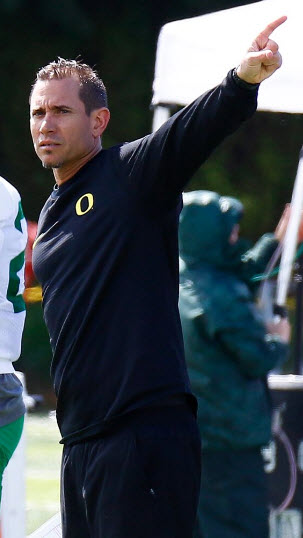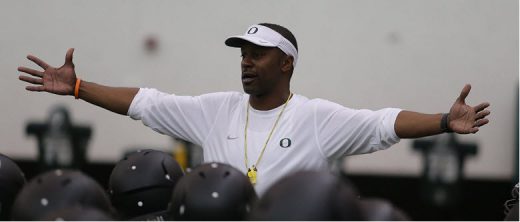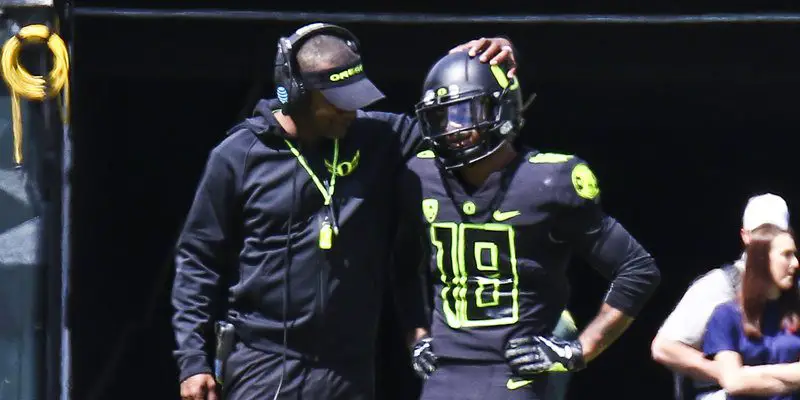Welcome aboard Coach! You stand poised to join a fabulous fraternity and will, if you choose to, exercise enormous influence on the choices your players make on and off the field, perhaps even years after they’ve graduated. But first, let me have a word with you, and give both a caution and request.
The simplest and most relevant piece of advice I can offer is not one I came up with. However, I regard it as truth after working as a football coach for 28 years. Regardless of how much football you know, please know this: If you cannot commit to loving each of your players, every last one of them, as they were your sons, then get out of coaching.
That’s right, walk away. Maybe run. Understand that you don’t have to like all your players — but to honor the coaching profession, you must put their interests ahead of your ego and emotions every time you make a decision. That’s what I mean by love. If you commit to that tenet, then you are standing at a place with the necessary leverage, potentially, to influence your players’ life choices, maybe for years to come.

Coach Marcus Arroyo knows the right way…
And if you do want to stay in the game, over the long haul, get a mentor. Perhaps there is a retired college or high school coach in your area. Perhaps your head coach is open to the process (I’m sure he’s “open” but may not have the time). Don’t be concerned that a retired coach may not be experienced with the latest “trends.” Two years ago, almost everyone in my region was running a 3-3 (or 3-5) with two high safeties.
Today the even front, the so called 4-2-5, is the rage (to better counter spread sets). Fine, it’s still a matter of gaining further insight so that you can contribute to meetings and practice planning. And the old bulls have a ton of it. Moving on …
Do not try be a friend to your players. Seriously, how old are you? Do you really need to expand your social circle with a bunch of 17 year olds? “No, not really, but my players and I can communicate better if we share stuff.” Nonsense. You’ll communicate better if you are seen as a trusted, wise adult.
It’s truly sickening to watch a supposedly grown man try to be “one of the guys” with their adolescent players. You are there to lead by setting an unwavering example and by teaching, not to be “cool.” Be authentic with your players every time. Be fierce, demanding and kind. Thus, players will be much more likely to seek you out when the chips are down.
Develop an eye for detail around technique so that you can teach, not just what to do, but how to do it. Demand consistent adherence to what you are teaching. And expect to labor long and hard to get compliance in many cases. If you have doubts or simply don’t know the technique in a given situation, ask another coach at the appropriate time; you’ll both be glad you did.
You are probably familiar with the term “next man up.” New coaches can honor that value set by being prepared to take over the practice session if necessary. Never show up at practice without spending a few moments to mentally transition out of your other job. Back in the day, fighter pilots spent a whole day preparing for training missions before they were ever flown.
Always have two drills (everyday drills excluded) relevant to the practice plan that you can run confidently, even if you are normally not in a position to specify or choose drill content. The opportunity may come upon you suddenly, especially during doubles. Be ready to lead. This puts an additional labor burden on you, right? Suck it up. Authenticity comes from preparedness. Your players will sense they can trust you in the teaching role and your head coach will love you for it.

You gotta care THIS much…
You were probably brought on staff, especially if you are a younger coach, to coach the position you played. Begin immediately to broaden your knowledge:
- Even if you coach on the offensive side of the ball, know the base defensive set in terms of the position responsibilities, at least at the high level. These responsibilities will often be modified in response to the game plan. Don’t become frustrated when that happens, stick with the basics and be patient. Why do this? Because defense wins. (Sorry all you all-conference offensive standouts.)
- Get good at coaching some aspect of your program’s special teams package. Special teams are not a “down off” for players; neither are they for you, Coach.
- Even if you have no coaching responsibility for the offensive line, know the basic blocking rules and frequently made line calls. The third most “important” position on the field, according to recent fashion, is that blindside tackle, right? Maybe in your school’s system it’s some other lineman. Either way, how can you be a coach and not know something about the trenches?
Tommy Prothro, former head coach of the Oregon State Beavers, San Diego Chargers and Los Angeles Rams, once facetiously observed that the secret to becoming a good football coach was to be smart enough to figure the game out and dumb enough to think it mattered. Like Coach Prothro, you know that it does matter — because it’s tough to be a kid today.
God bless and good luck, Coach.
Coach Tom Kaspar
Camas, Washington
Top Photo by Gary Breedlove
Related Articles:
Seven Offensive Coordinator Candidates for the Oregon Ducks
A Legendary Coach Explains Cristobal to Fans: Win with STRATEGY, Not Scoring
Analytics vs. Common Sense: For Coaches Making the BIG DECISIONS
Five Candidates to Replace OC Marcus Arroyo
Coach Jim Mastro: The Perception, and the Truth
Has Oregon Turned the Corner on Offense?
Raised on the South Side of Chicago, Coach Kaspar coached at Marist High School in Eugene for twelve years and later for eleven years at Kentwood High School near Seattle. Tom received his MBA from the University of Oregon in 1969.
He is a retired chief executive and management consultant who today lives in Vancouver, WA and coaches at Camas High School. He wishes to offer encouragement and insight to coaches in their leadership role and assistance to fans.

